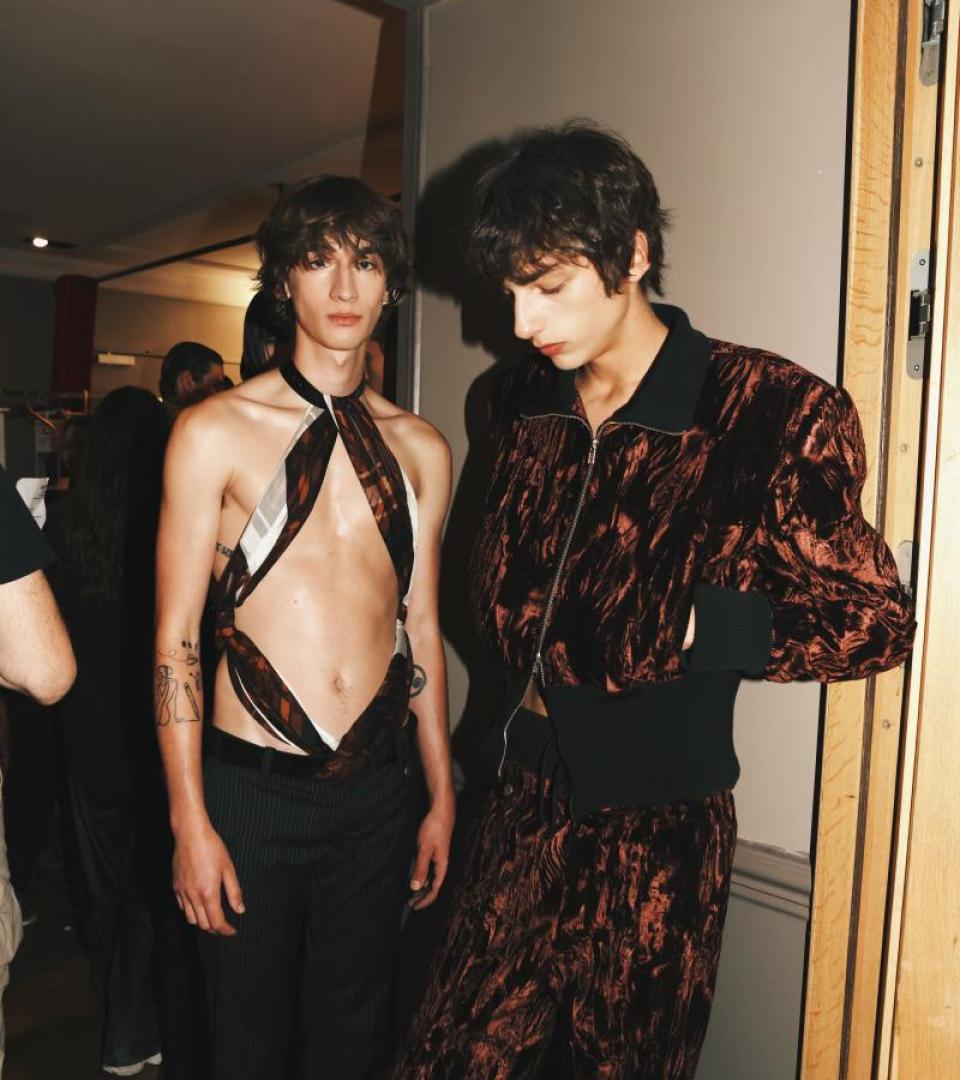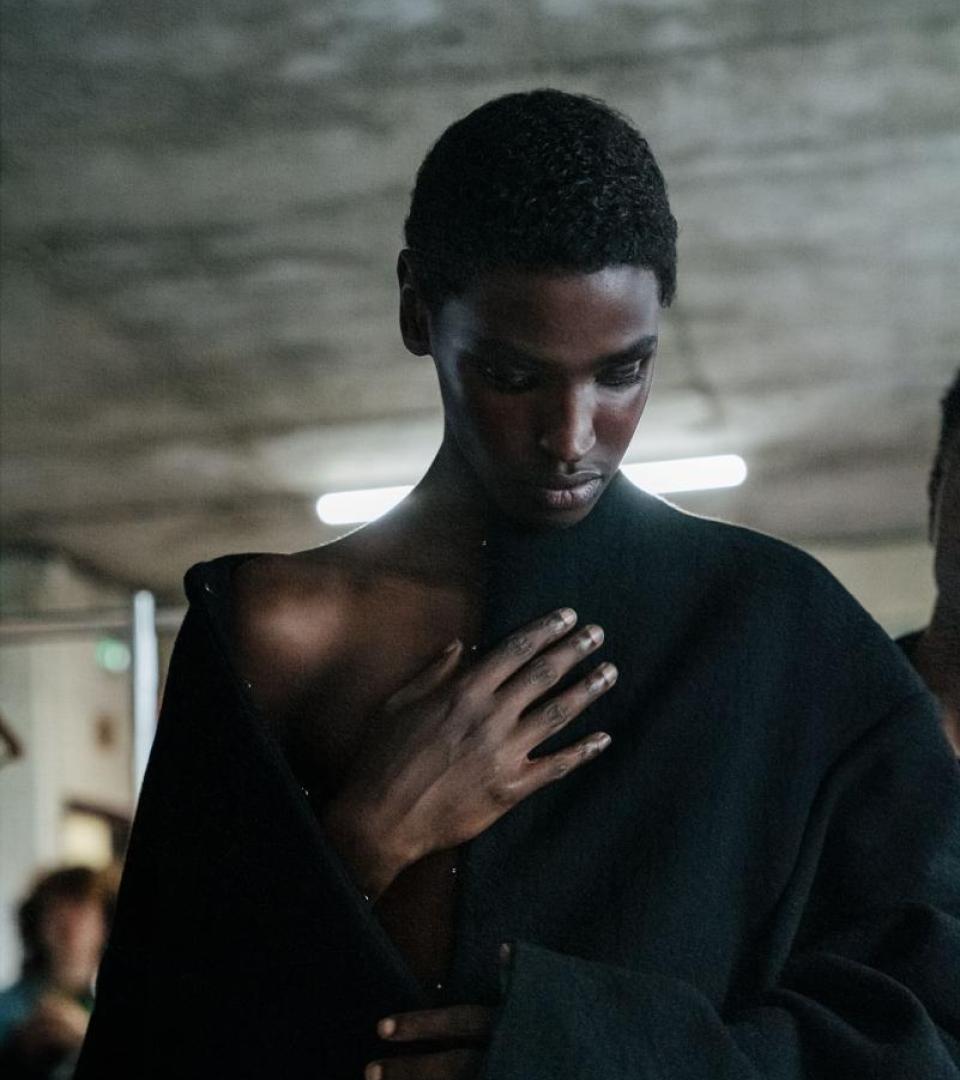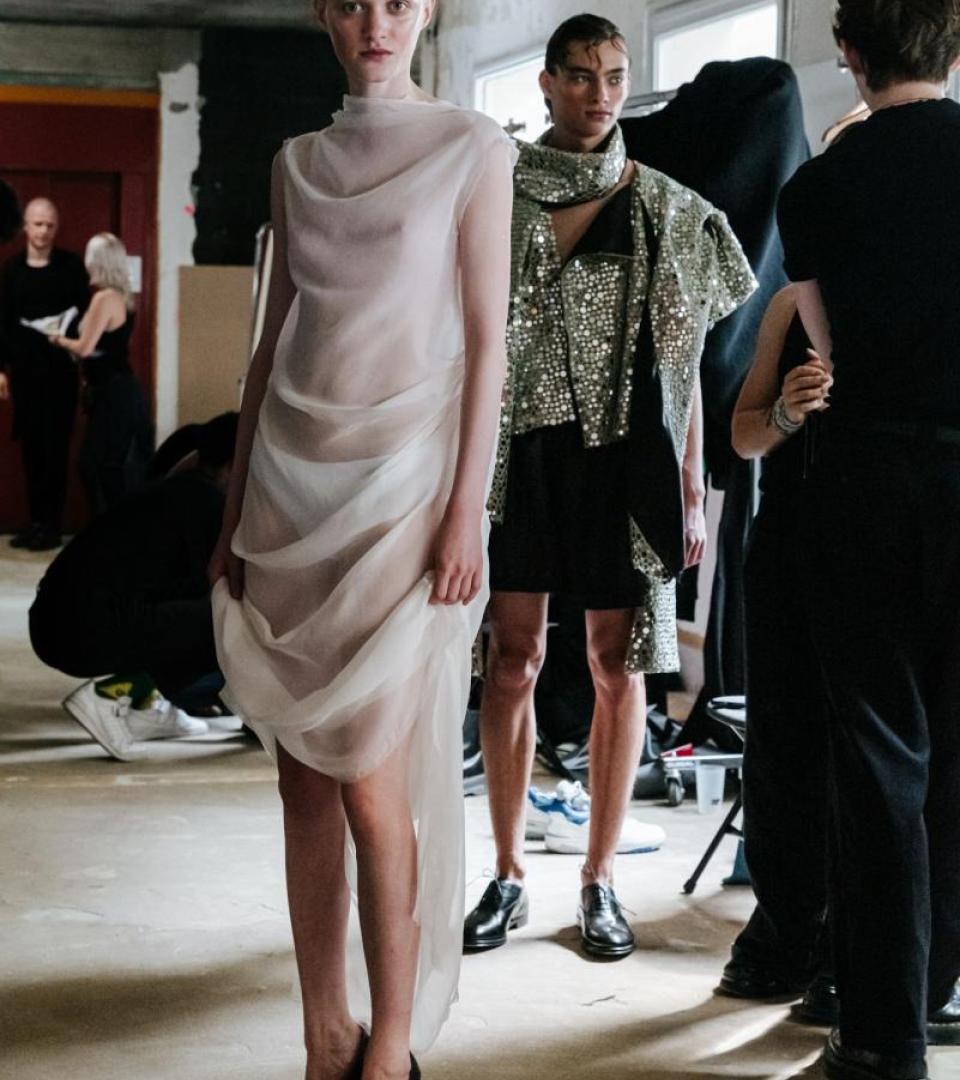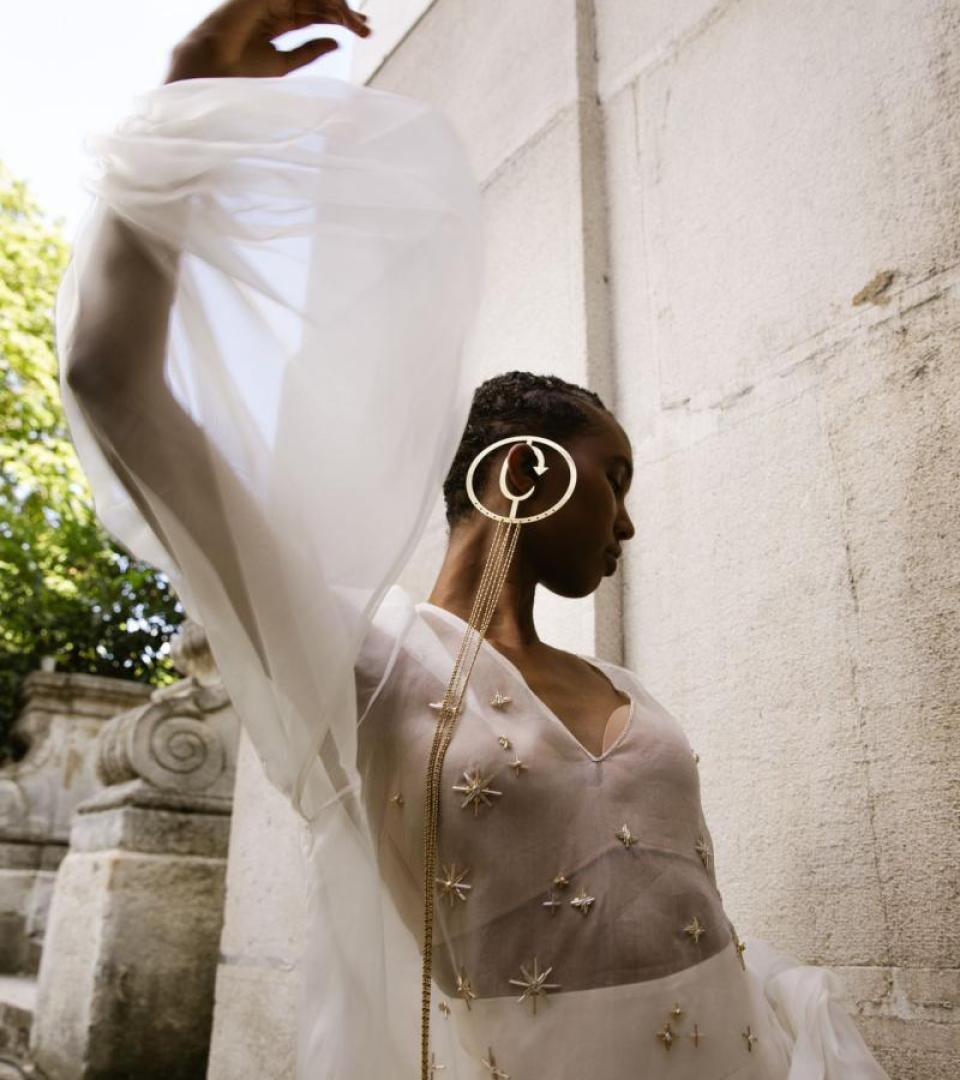Where do you look for new ideas or voices in fashion?
I still rely heavily on word of mouth and personal recommendations from friends and collaborators. These organic exchanges often lead me to unexpected names or concepts I might not have discovered on more mainstream channels. Social media is a useful tool of course; it gives a sense of what’s circulating and who’s gaining momentum. But I find that real discoveries tend to come through offline conversations. These slower, analog encounters feel more valuable to me.
In which ways might fashion creativity effectively drive growth?
There are only so many ways to dress the human body. Silhouettes and cuts always eventually repeat. But what keeps fashion alive is the injection of new attitudes and cultural context. Creativity is what prevents the industry from collapsing into repetition. Without it, you're left reissuing the same garments over and over again. Growth happens when designers and other actors of the industry reinterpret clothing through a contemporary lens. Creativity is there to challenge old formulas, to speak to new generations, to fuel relevance and in the end to spark desire.
How essential is heritage and/or a distinctive identity in contributing to a brand’s success?
I’m not sure what ‘heritage' means anymore. The word gets used so broadly it’s lost its meaning. Often, it signals longevity rather than something deeply rooted and carried forward. If heritage means anything valuable today, it’s less about a codified aesthetic and more about an inherited relationship with a loyal customer base. Designers rotate out of brands every couple of years and we’re left with surface-level markers like logos or a colour palette. I am more interested in brands, new and old, that cultivate a sense of consistency in point of view. That might not look like traditional heritage, but it builds something way more powerful: clarity. That’s what connects with people, not just nostalgia or name recognition.
What surprises you about the industry in 2025?
If anything surprises me, it’s how much it doesn’t change. And yet, I keep watching because fashion has a way of reinventing itself when you least expect it.
Who or what is generating the greatest influence in fashion today?
It would have to be the major luxury conglomerates that hold an oversized influence over the direction of the entire industry. Their decisions ripple far beyond their own labels. They impact everything from retail structures to what young designers think is possible. This isn’t necessarily negative, but it does mean that independent voices have to work much harder to be heard and that influence is measured in market share, not vision.
What defines men’s elegance in a contemporary context?
I don’t know if it’s contemporary but to me it’s always been about knowing oneself, not following fashion.
There seems to be more overlap between fashion/entertainment and fashion/sports than ever. thoughts?
I’m neither a sports person nor an entertainment person. That said, I don’t dismiss the overlap as I know they are effective conduits for visibility. If the goal is to move product or scale influence quickly, this makes perfect sense but I believe fashion should not lean too hard into spectacle.
Do trends still matter?
I wouldn’t necessarily refer to them as trends anymore, but more as sequences. What used to be season-defining movements now feel more like short lived flashes of moods. They rarely end up reshaping anything. The waves still exist, but there is less urgency to ride them.
This interview has been lightly edited.



